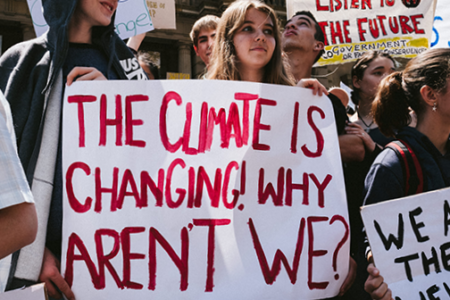March 3, 2020 – In my work on grassroots policy development for the Liberal Party of Canada, I have struggled for some time to develop workable solutions for the climate crisis we face in this century. Policy development is not an easy thing particularly in a country as diverse geographically and economically as Canada. From sea-to-sea-to-sea, this nation has complexities that make a singular approach to problem-solving difficult.
For six years I have led a local riding committee focused on policy development. The Liberal Party holds biennial conventions in which policy discussions are featured. Riding associations (ridings are the districts that members of parliament run in and represent) are asked to make resolutions which then go through a vetting and voting process at these biennial meetings. The resolutions can cover almost any topic. For example, our riding association so far in the deliberation process which involves monthly themed discussions, is drafting a number of resolutions including:
- A universal basic income series of pilot projects across the country
- The creation of an open education initiative to make the Internet a low-cost to free learning environment for Canadians regardless of where they live
- A review of how the Internet and digital tools can be deployed to facilitate open government
- A decarbonizing of the economy to achieve net-zero emissions by 2050 by tackling the two largest emission sectors: energy production and transportation
The focus of this posting is on the latter resolution. How do you construct a policy that uses both regulation and taxes to achieve decarbonization at a pace that ensures global warming doesn’t exceed the upper limit of what the Paris Climate Agreement of 2015 deemed acceptable? How do you get industry and public buy-in? How do you get the rest of the developed nations of the world to join you in decarbonizing while helping less developed countries build low-carbon energy and transportation infrastructure so as not to repeat the mistakes of the former which have created the global warming crisis we collectively face?
In the last week, I have been reading “The Citizen’s Guide to Climate Success,” authored by Mark Jaccard. If you type the title into a Google search, you can download an ePub version of the book to read online. Jaccard is a professor of sustainable energy at the School of Resource and Environmental Management at Simon Fraser University in Burnaby, British Columbia. Many years ago when I was an acquisitions editor for a technology publishing house, I visited Simon Fraser. It was an early December day with a heavy marine layer covering Vancouver. As I drove out to Burnaby and climbed to the hilltop university I emerged into the brilliant sunlight. That first impression has always remained with me, a place rising above the fog and all the symbolism that it projects.
Jaccard is an economist. He teaches graduate students about sustainable energy. He has been an adviser to the British Columbia government and helping them to deploy a decarbonizing agenda with a mix of regulation and carbon tax. He advised the federal Liberal Party in Canada when it chose to run in 2009 on implementing a carbon tax and subsequently lost to the Conservative Party running their campaign against “job-killing carbon taxes.” That aforementioned phrase remains the mantra still of politicians opposed to pricing carbon ever since, whether they reside in this country, the United States, Australia, or elsewhere.
Jaccard writes, “The carbon tax is, from an economic efficiency perspective, the perfect policy, which is why lots of people, especially economists, keep saying we must price carbon emissions. But this statement is factually incorrect; even 100% decarbonization can be achieved by regulations alone. And, in the real world of politics and policy, the selection of GHG reducing policies involves a trade-off between cost-effectiveness and the likelihood of implementation. Single-mindedly pursue carbon pricing and we could end up with nothing.”
Therein lies the challenge in developing an effective decarbonization policy that can conceivably be adopted nationally, and get buy-in internationally.
In a previous effort to develop a national carbon policy, I had proposed that the Liberal Party develop a number of carbon calculators to reflect the various regions and climates within the country, and to issue every citizen a quantity of carbon currency in a carbon wallet to be spent on purchases where carbon content was measurable. An application similar to the SWRM carbon calculator could allow consumers to use their smartphones to calculate carbon content and track their individual carbon footprints annually. Each year citizens would trade carbon currency in a national consumer cap and trade program with those with empty wallets the buyers, and those with remaining currency the sellers. The proposed resolution didn’t pass muster. In hindsight, I believe it was premature to consider it at this stage in the climate change battle.
That was two years ago. In returning to the issue of decarbonizing the Canadian economy, let me share with you the current draft of a brand new policy resolution attempting to tackle the most significant sources of emissions in the economy to get us closer to net-zero by 2050, and to surpass the current 30% emissions reduction target for 2030.
Policy resolutions follow a particular structure beginning with a series of “whereas” statements, followed by the resolution. You have to keep them short (under 250 words), but you can include supporting documents to follow. I won’t provide the latter to you at this moment. But here is the resolution. See if you can buy into what it addresses, and let me know through comments on the blog site, Facebook, Twitter, Momentum, and LinkedIn.
WHEREAS Canada is committed to decarbonizing its economy to net-zero emissions by 2050,
WHEREAS the voluntary Paris Climate Agreement has failed to reduce greenhouse gas (GHG) emissions nationally or globally,
WHEREAS, in a recent polling of Canadians, climate change is considered either the top or one of the top three issues of public concern,
WHEREAS, there is a necessity to reduce carbon emissions to reverse the worst effects of climate change,
BE IT RESOLVED that the Liberal Party of Canada in consultation with the people of the country in all provinces, territories, municipalities, First Nations, Inuit, and Metis, begin to tackle climate change by concentrating on the two largest contributors to GHGs: the energy and transportation sectors which represent more than 50% of total emissions by proceeding as follows:
- Regulating the transportation and energy sectors in Canada through a comprehensive carbon pricing and fuel content and economy standards strategies.
- Establishing international agreements with like-minded nations and sub-jurisdictions including municipalities to extend these regulations and carbon pricing beyond Canada’s borders.
- Use carbon tariffs on imports from countries that do not apply similar regulations and carbon pricing to their energy and transportation sectors.
- Form associations of like-minded countries, and sub-jurisdictions to globalize the decarbonizing effort in these two sectors to make the action fairer for all nations putting us all in the same basket.
- Financially and technically help the poorest countries that lack the means to energize and mobilize their economies using low-carbon technologies.









